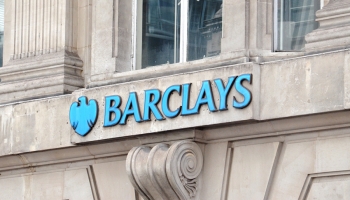How Barclays is Using AI to Detect and Prevent Fraud
The global banking giant is investing in data and cloud computing to boost security and customer experience
- |
- Written by Banking Exchange staff

The development of machine learning and other artificial intelligence (AI) technologies will improve customers’ security and experience and should not be seen as a threat, according to experts at Barclays.
The bank working on improving its data to help it use AI technologies to detect and reduce fraud, according to Keith Little, head of fraud, merchant services and platform capabilities technology.
“At Barclays we are creating and implementing efficiencies by eliminating repetitive everyday tasks that require little human skill but would otherwise take up large amounts of employees’ time,” he said.
Little added that rich datasets and improvements in cloud computing technology had allowed AI to be put to use “more effectively” in fraud detection and prevention.
“The accuracy of our fraud detection tools is paramount, and ultimately this comes down to the quality and quantity of the data available to feed into our decision algorithms,” he said.
Outside of fighting cybercrime, Barclays is also using similar technologies to improve its customer service, according to Isaac Ben-Akiva, head of machine learning at the bank. He highlighted chatbots as a prime example.
“We have great depth of experience in resolving customer needs, and, as a result, a wealth of data on the ways in which customer issues are caused and resolved,” he said.
“Machines have the capability to sift through this data much faster than humans, meaning they are better able to quickly and accurately match customers with the answers they seek based on our experience and insight.”
However, a recent survey by TD Bank of corporate treasury and finance professionals indicated that, while interest in technology was high in the banking and finance sectors, it did not match companies’ ability to implement.
At a conference in October the bank polled 329 delegates, with 32% saying adapting to faster payment technologies was a top operating challenge.
One in five (22%) said they expected their firms to invest more into AI and machine learning.
Other top areas for technology investment, according to TD Bank’s poll, included data, analytics and reporting (23%) and cybersecurity and fraud protection (22%).
“Adoption of the newest payment standards will pay dividends for organizations over the long term,” said Rick Burke, head of corporate products and services at TD Bank. “The cost to companies of not doing so will increase exponentially in coming years and inaction also presents operating risks. The best time to upgrade was yesterday, but today’s your next best bet.”
Despite lagging on implementation of new technologies, companies were still concerned about fraud and cybersecurity risks, the poll found. These risks were of more concern to many finance professionals than an imminent economic downturn.
TD Bank found that half of respondents did not believe an economic recession posed a threat this year, while 40% said they were concerned about fraud and cybersecurity.
Tagged under Technology, Financial Trends, Tech Management, Outsourcing/Cloud, Security, Compliance Management, Compliance/Regulatory, Cyberfraud/ID Theft, Big Data, Feature3, Risk Management, Feature,